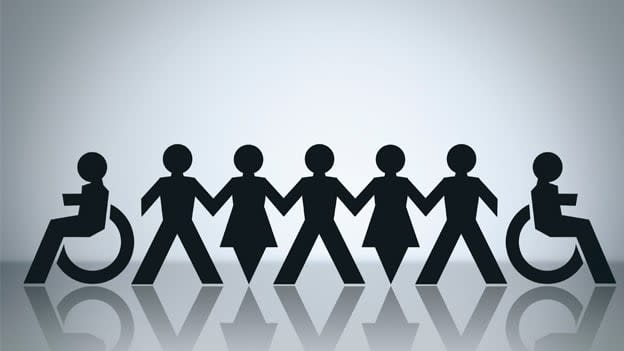How HR leaders can create & embrace disability inclusive cultures

Almost 3 crore Indians suffer from unique disabilities. But, it’s not the physical disability which keeps them secluded. It’s the non-acceptance in the workplace and society which alienates them. People with disabilities (PWDs) are just as talented as everyone else and deserve an equal chance in the corporate world. In a 2018 whitepaper published by Accenture, it was highlighted, companies that hired PWDs were able to achieve 28% higher revenue levels with 2X higher net incomes.
Certainly, the onus is on the HR leaders who should consciously foster more inclusive workplaces while giving people with disabilities a level-playing field when it comes to opportunities.
Leading a ground-breaking initiative for workplace inclusivity is Caroline Casey and her global movement, ‘The Valuable 500’, to create widespread awareness around this pressing issue. The idea behind this campaign is to urge global leaders to commit to the vision of disability inclusion and make it a part of their boardroom agenda. 240 companies from 42 sectors have joined the movement since its launch in January 2019 with a combined economic impact of $3.8 trillion worldwide. Members span 24 countries, reaching more than 9,863,000 employees. This year at Davos, it was announced that The Valuable 500 has been named as an official project partner of the World Economic Forum (WEF).
In India, Brookfield Properties is one of the top corporates that has signed up for this initiative. The company has been facilitating infrastructure upgrades including wheelchair parking areas, specially-built washrooms, and access ramps across its campuses. Since its inception, it has been working towards transforming all its buildings into universally-accessible spaces and has now joined the global movement to bring inclusion in its management agenda. Accenture India, Tata Steel, Infosys, and Capgemini India are some other players that have taken the lead in creating inclusive workplaces and adopting equal opportunity guidelines.
The essential role of HR leaders in making disability inclusion a key agenda
On the back of this emerging transformation that should have happened anyway previously, it is crucial for HR leaders to stay committed not only towards hiring PWDs but go beyond and enable them at the workplace. To make this initiative fruitful, HR leaders must reshape the overall process of talent management, transform their conventional perspectives towards recruiting PWDs and adopt practices to help them achieve their full potential.
Hiring these individuals isn’t something that they should do for clocking inclusivity numbers. Rather, they should understand and anticipate the positive impact these talents could bring to an organization in terms of improved profitability and revenue levels.
What more HR leaders should do apart from hiring PWDs?
HR leaders should foster a culture that is attuned with disability inclusive guidelines, with a strong focus on educating all employees on how to treat and respect PWDs like equals and ensure that they are never alienated from relevant conversations. The HR should also ensure equal participation from the senior leadership in making the lives of PWDs better at every step during work and post-work hours.
Moreover, they should conduct frequent awareness drives within the organization and ingrain a zero-tolerance policy against discrimination of PWDs. Another alternative to promote disability inclusion is to collaborate with specialized NGOs and agencies that are designed to help other organizations in implementing disability-inclusive measures and drive workplace inclusivity across various departments.
As leaders across the globe are increasingly becoming aware of the large-scale benefits that people with disabilities can offer to corporates and other evolving businesses, the commitment to their inclusion is also increasing. Caroline Casey recently announced Phase 2 of the campaign at Davos World Economic Forum in January, with the deadline to join The Valuable 500 campaign now extended to 15th September 2020, coinciding with this year’s UN General Assembly. The campaign hopes to have 500 global business leaders and CEOs signed up for the initiative by this point, in line with the UN’s Sustainable Development Goals to reduce inequality and create inclusive, safe, resilient and sustainable cities and communities.
Undoubtedly, disability inclusion is one of the most important catalysts for change, helping to build inclusive businesses and, ultimately, inclusive economies and societies. HR leaders hold the key to the implementation of this movement, in letter and in spirit.
















